NASCAR is Kyle Petty’s way of life — even when tragedy strikes
Adam Petty had no chance. In May 2000, during a practice lap at the Busch 200 NASCAR race at the Motor Speedway in Loudon, New Hampshire, the young racing driver had entered the third turn on the track but when his throttle stuck, he lost control, forcing his car into the racetrack wall at 130mph, and killing him instantly.
He was just 19.
As his father, and NASCAR legend, Kyle Petty explains in his new book “Swerve Or Die – Life at My Speed in the First Family of NASCAR Racing” (St Martin’s Press] he was in a London hotel with his daughter, 14-year-old Montgomery Lee, when he got a call from his friend and NASCAR official Mike Helton. “Adam’s been in a bad wreck,” he said to me. “He’s been transported to the hospital.”
Within 20 minutes, Mike called again.
“Man,” he said, reaching for the right words and realizing there weren’t any. “I’m so sorry.
“He didn’t make it.”
When he started out, Kyle Petty knew nothing but NASCAR. Born in Randleman, North Carolina in 1960, it was all but pre-ordained that he would become a racing driver. His grandfather, Lee Petty, started his own NASCAR team and raced in the very first NASCAR race in 1948. He also won the inaugural Daytona 500 race in 1959.
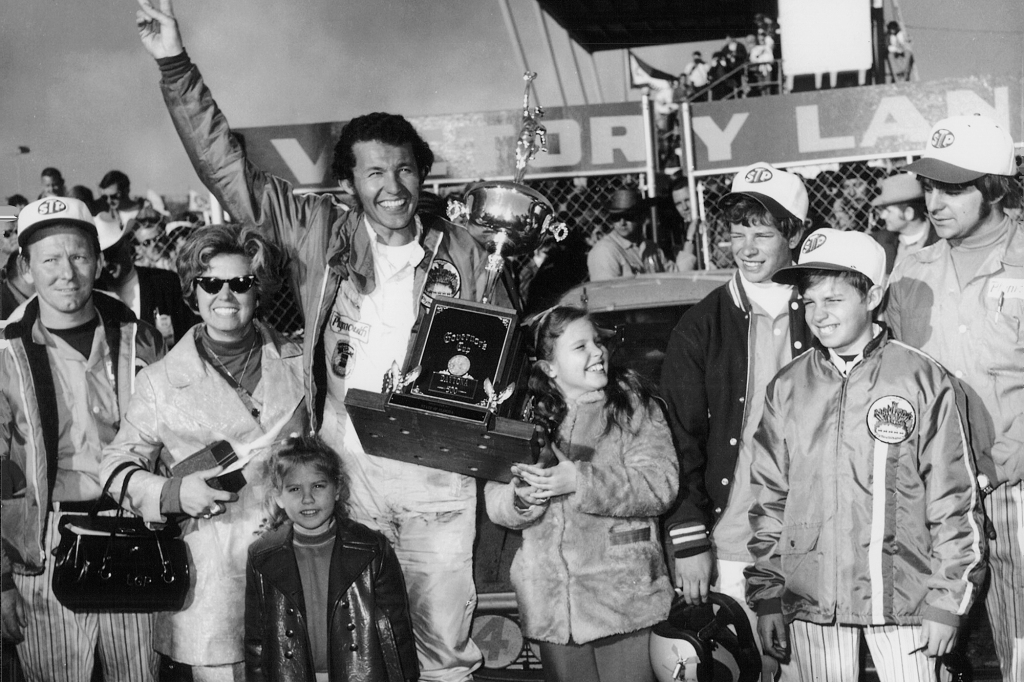
His father Richard was a NASCAR superstar, winning over 200 races, including the Daytona 500 a record seven times. Kyle Petty, meanwhile, would make his stock car race debut at the age of 18, winning his first race at the 1979 Daytona ARCA 200 in one of his dad’s old Dodge Magnums and becoming the youngest ever winner of such an event.
’The truth is you can’t realistically ignore the danger.’
Kyle Petty in “Swerve or Die — Life at My Speed in the First Family of NASAR Racing”
“I got a real nice trophy and a check for $4,150,” he recalls.
“Did that make me a professional racer? I guess it did.”
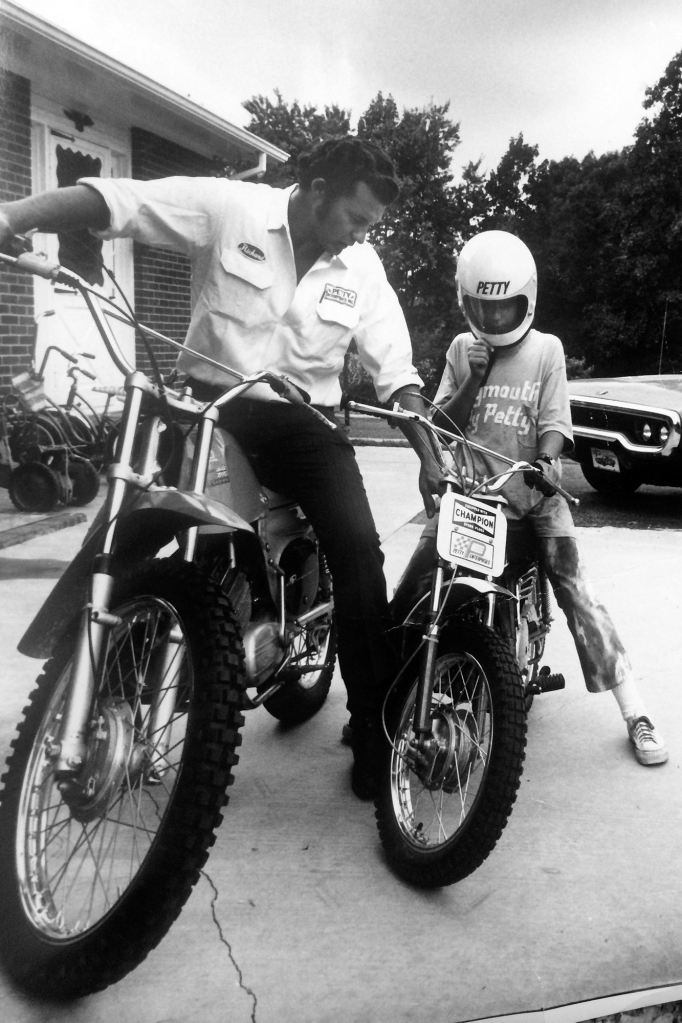
Adam Petty’s death came less than six weeks after he had made his NASCAR Cup Series debut in Fort Worth, Texas, an appearance that made him the first fourth-generation professional athlete in America. “That sounded nice,” writes Petty. “But when you thought about it, it was also an awfully weighty legacy for a 19-year-old to haul around.
“Adam was just a kid, as anyone who knew him at all could plainly see.”
Kyle Petty had long wrestled with the idea of his son following him into racing, but it was in the family’s DNA. “At the beginning of NASCAR, Grandfather Petty had started a race team, and when my dad came along, he drove for my grandfather’s team. The fact that my grandfather came before him meant that my father had a place to start.
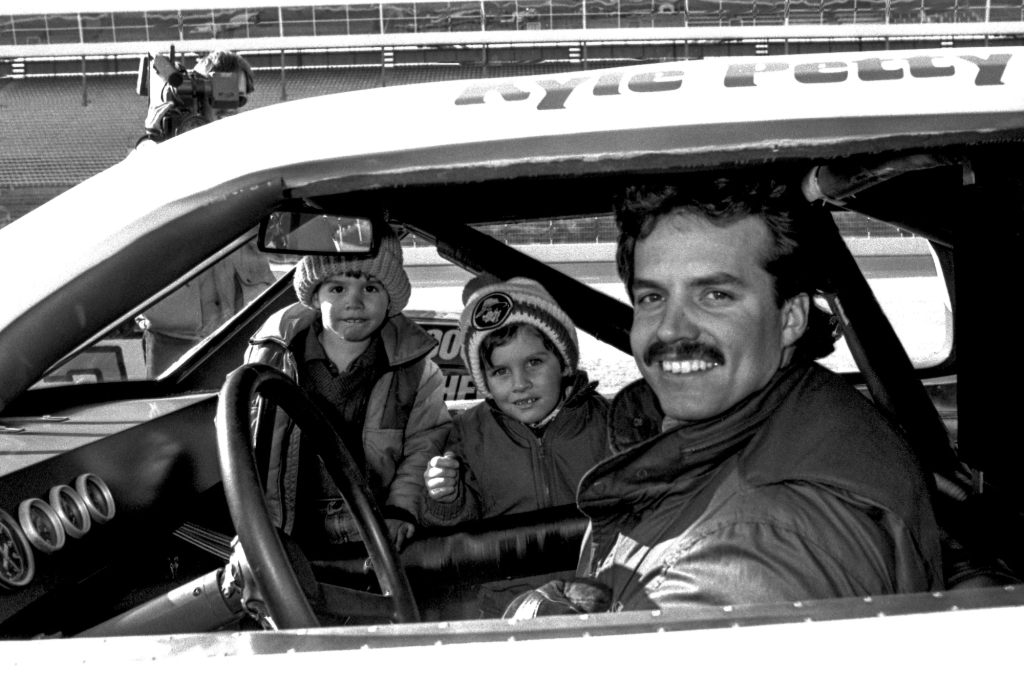
“My dad didn’t have to go find a job. He didn’t have to go anywhere else. Same thing with Adam.”
Amid the many highs of a 39-year racing career spanning over 800 races, Kyle Petty also witnessed some dreadful lows, including the deaths of fellow drivers and friends like Dale Earnhardt, killed in a crash in the Daytona 500 in February 2001.
While Adam’s death was the nadir, it wasn’t the first racing tragedy involving his family.

In 1965, Petty’s father Richard was competing in a drag racing event in Dallas, Texas when his dragster malfunctioned, causing him to lose control. The vehicle smashed into a dirt embankment and as one of the front tires broke away, it bounced over the safety fence and into the crowd, killing an 8-year-old boy.
Petty was also there when his uncle, Randy Owens, tried to pull his father from a smoking car in the pits at the Winston 500 race in Talladega in 1975. When a water tank exploded, throwing him 15 feet in the air, it crushed his chest and then broke his neck when he landed. He was killed instantly. “It was a horrible thing to witness. I was standing right there. I was in shock,” writes Petty.
On Labor Day 1998, just three weeks after his 18th birthday, meanwhile, Petty’s son Adam pulled in for a pit stop during the Miller Lite 300 race at the Minnesota State Fair. As he came to a halt, crew chief Chris Bradley slipped under the car to fix a problem – but Adam didn’t see him.
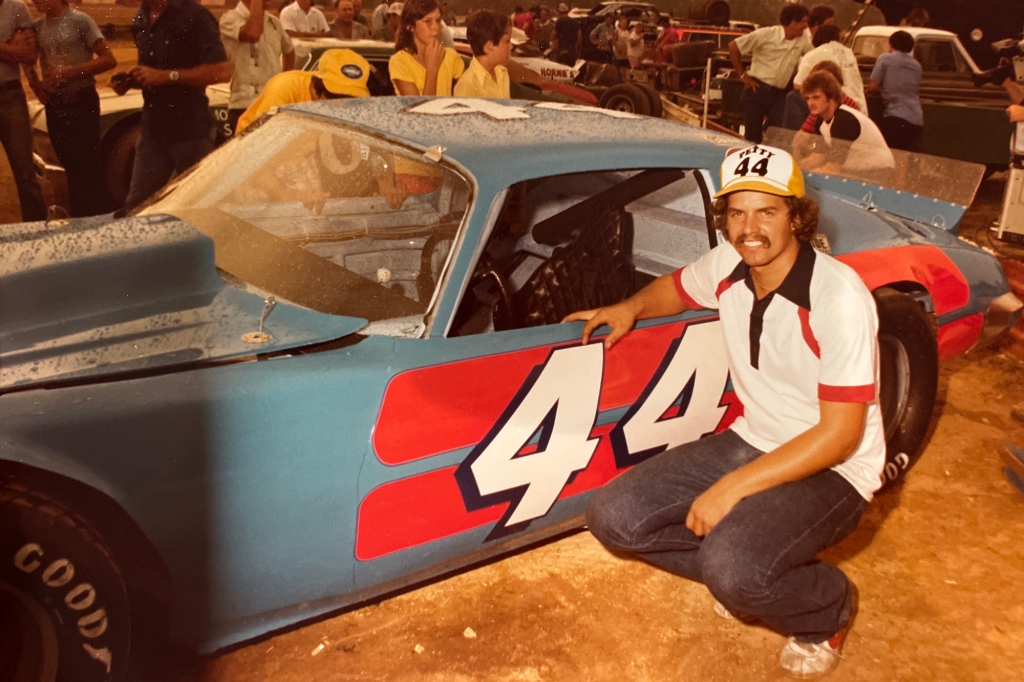
When he raced away, he ran over Bradley. “As the car came off the jack, Chris was still on the ground underneath the car. Adam hit the accelerator,” writes Petty. “He said later that he felt a bump as he pulled out. Did he run over an air wrench? A tire? He didn’t give it a second thought until track officials stopped the race, and Adam learned what had happened to his crew chief and friend.”
Bradley was taken to the hospital, but died of his injuries.
Kyle Petty was one of the lucky ones. Sixteen years after he had seen his Uncle Randy die at Talladega, Petty also had a brush with death in the same race. As cars crashed ahead of him, one landed on his car. “I’d mostly been wearing black uniforms but on this day, I happened to be wearing white,” he writes. “I looked down at my white pants legs, noticing a red stain and something poking through. That didn’t look normal.
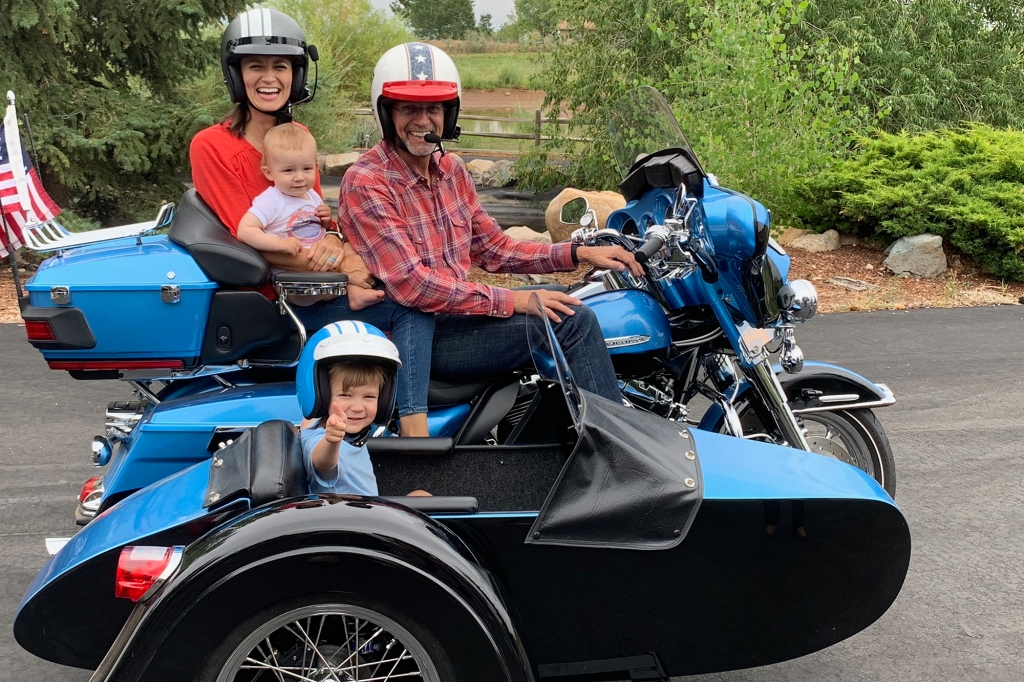
“It was a bone sticking out of my left thigh. A big bone. A very big bone.”
In a sport where speeds can exceed 200mph, it’s inevitable that accidents will happen. But for Kyle Petty, the ever-present peril is unavoidable. “The truth is you can’t realistically ignore the danger,” he writes. “But you have to separate it from all the other things you’re thinking about.
“Otherwise, you can’t go out and drive the car.” In this case, the injury was a compound fracture, requiring a year in rehab. He missed 11 races.
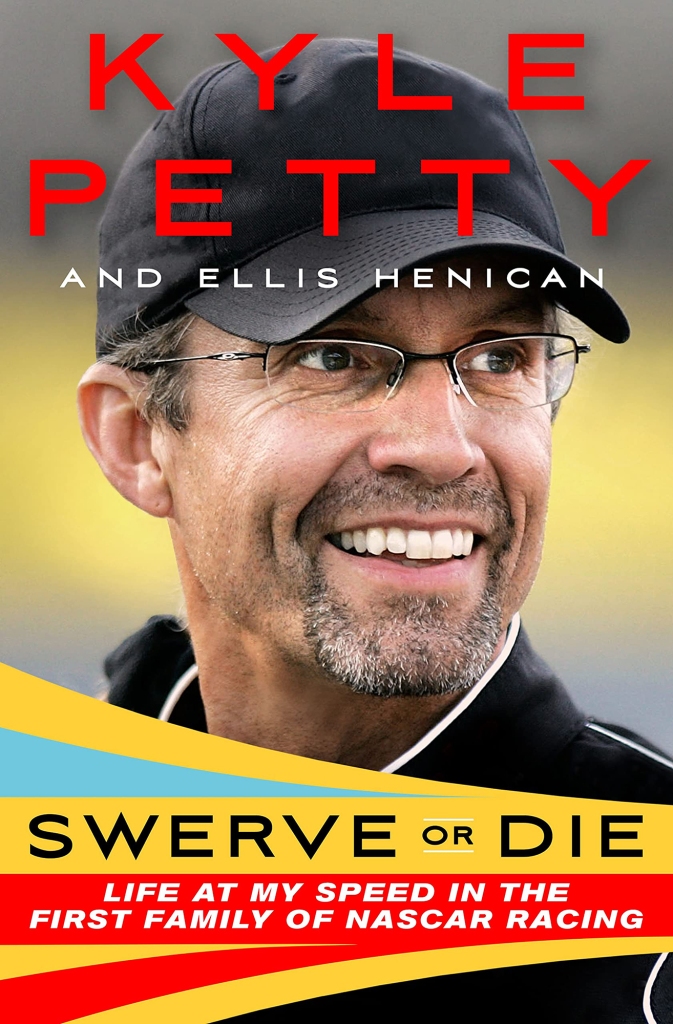
Now an analyst for NBC’s NASCAR coverage, Petty, 62, has used the tragedy of his son’s death to help honor his legacy. In 2004, he opened Victory Junction, a camp for children with serious illnesses on a 90-acre plot in the hills behind his parents’ house in Randleman (“It was a perfect location for a kid’s camp, and we didn’t have to pay a nickel for it,” he writes).
The generosity of his parents, Richard and Lynda Petty, was matched by the NASCAR community who helped to raise millions of dollars. He was also supported from some high-profile friends, including Hollywood icon and keen racer Paul Newman who sent him a personal check for $100,000.
Read the full article Here


